Fourth Annual Workshop for Academic Entrepreneurs
Fourth Annual Workshop for Academic Entrepreneurs: “Innovating from Universities for Global Health”
September 9, 16 and 23 2021, virtual seminars
The Institute for Scientific Research and High Technology Services (INDICASAT AIP), the Life Sciences Entrepreneurship Institute (ILSE) and the Secretariat for Science, Technology and Innovation (SENACYT), organized the 4th workshop Annual for Academic Entrepreneurs: “Innovating from Universities for Global Health” on September 9, 16 and 23, 2021, from 10:00 a.m. to 12:00 p.m. in virtual mode.
This event continues the cycle of conferences conceived and initiated by INDICASAT AIP in 2017 with the aim of creating and stimulating local business capacities within the academy. Each year, the trainings have led the participants through the conception of a technology-based venture. It began with the basic concepts such as knowledge and management of intellectual property, the discovery of the local actors of the entrepreneurial and innovation ecosystem, then the transfer of technology and the creation of StartUps.
This year there was an impressive group of international experts who shared their experience in generating entrepreneurship promoted from the academic sector in response to the COVID-19 pandemic. Topics included: communication technology and machine learning; crisis-driven innovations and programs; cases of university companies developed to protect the public health of the university and the community; building an investment climate; and the Consortium of Scientists for Pandemic Preparedness.
For this three-day training, international and national experts with vast experience in the academic and business sectors of the United States, Costa Rica and Panama were involved.
Dr. Joel Freundlich, Associate Professor in the Department of Pharmacology, Physiology and Neuroscience at Rutgers University and founder of the Consortium of Scientists in Response to the Pandemic spoke about Machine Learning applied to drug discovery and Dr. Carlos Kan, National Director of Innovation of the National Government Innovation Authority (AIG) of the Republic of Panama spoke about AIG: The experience of Panama and how applied science can generate sustainable and viable opportunities.
Regarding the programs and innovations driven by the COVID-19 crisis, we listened to the presentations of Dr. Marshall Hayes who has been directly involved in strengthening the Center for Clinical Laboratory Science and Pandemic Research at Kean University (United States) and who shared his experience within this multidisciplinary university center for innovation in pandemic research.
Dr. Robert Pyatt, Assistant Professor of Molecular Genetics at the New Jersey Center for Science, Technology, and Mathematics and current Director of Kean University’s Clinical Diagnostic Laboratory spoke on University Enterprises: A CLIA-Accredited Laboratory Development Case Study for support the public health of the university and community.
An interesting perspective of the innovative ecosystem of the sister country Costa Rica, was shared by Dr. Vanessa Gibson, Director of Investment Climate of the Investment Promotion Agency of Costa Rica, CINDE, who spoke about her experience Building the investment climate in Costa Rica.
Finally, Dr. Thomas Richardson, the president of the Institute for Life Science Entrepreneurship, a research center and business accelerator and incubator, spoke about a Consortium of Scientists for Pandemic Preparedness – a nonprofit focused on aligning the scientists to address future outbreaks.
“The university and research leadership in Panama has continued to develop meaningful and forward-looking economic development programs, as well as initiatives that reflect our current environment. The most recent workshop, for example, featured university initiatives created in the USA. that aim to address the challenges arising from the coronavirus pandemic, as well as the formation of consortia that organize opinion leaders to better position research communities for upcoming health emergencies. Furthermore, learning about best practices for long-term economic development will only help boost the Panamanian research community for the benefit of scientists, job growth, and public health in general. ” – said Dr. Richardson.
Those attending this series of seminars represented the government, academic and research sectors in areas such as virtual education, information technology, the pharmaceutical sector, biology and conservation, medicine, surgery and research and development.
Attendees had the opportunity to evaluate the event and make recommendations. Among the topics suggested by the participants to continue the trainings, the following stand out:
- Address the challenge of developing innovative thinking in Latin America.
- The effective application of information and communication technologies (ICTs) in education
- The development of chemical libraries at the national and regional level in the light of innovative thinking
- Evaluate public policies at the national level to define the best conditions that promote academic endeavors.
- Present the experience and best practices of successful countries in academic innovationByr: Dr. Catherina Caballero-George, Coordinator of Center of Innovation and Technology Transfer, INDICASAT AIP; E-mail: c.caballerogeorge@gmail.com, Tel. +(507) 517.0737
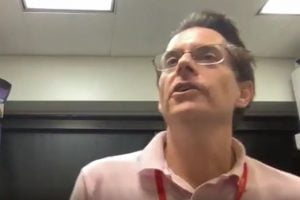
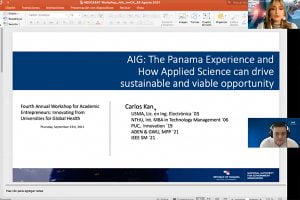
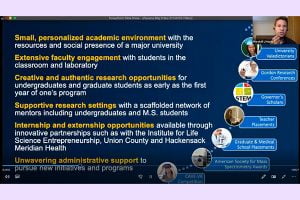
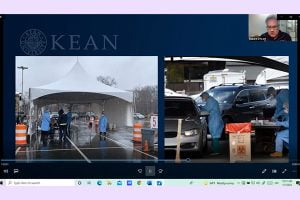
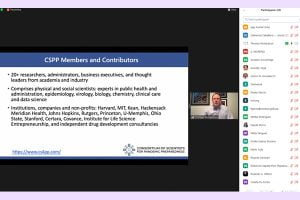
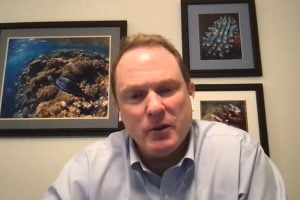
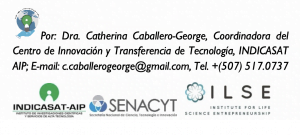


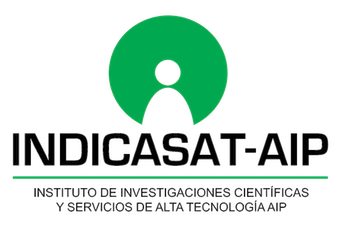
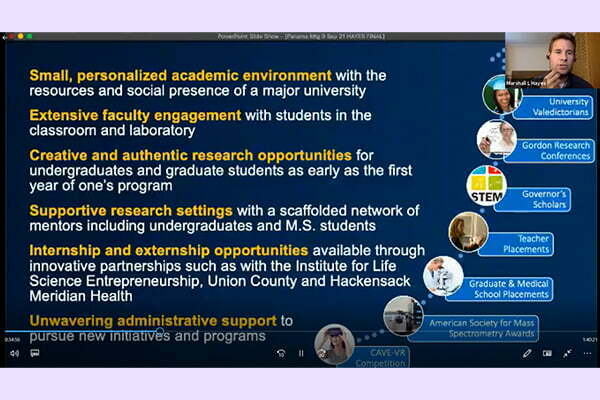
Leave a Reply